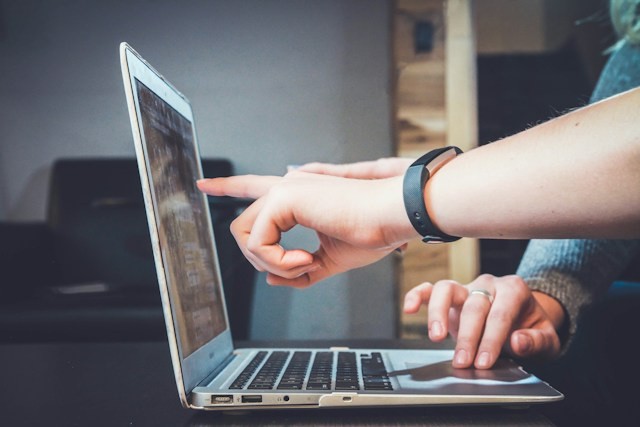There has been a surge in the blending of artificial intelligence (A.I.) technology and traditional research fields, supercharging innovative ventures and scientific discoveries. The intersectionality of these areas brings forth the vital question of patentability norms for AI-assisted creations.
For the first time, the United States government has established a clear stance to guide inventors, large corporations, and hobbyist innovators in intellectual property protection pursuits. This landmark decision can influence the future trajectory of multi-billion-dollar investments and artificial intelligence's overall application and marketing.
On Tuesday, the United States Patent and Trademark Office (USPTO) pronounced that a natural person must contribute significantly to manufacturing an invention to qualify for a patent. Further, only a human can be the inventor named on a patent application.

A Boost to Innovators, Keeping Human Ingenuity Intact
The just-released guidance provides an impetus to innovators by affirming the patentability of their AI-related inventions. Simultaneously, this draws a line for A.I.'s role in creativity, preserving human creativity and ingenuity's centrality in the creation process.
The timeline of these guidelines attests to the proactive measures taken by the Biden administration in governing A.I. issues. A far-reaching executive order issued by the White House mandated the USPTO to unveil its inventorship guidelines by the end of this month.
Nevertheless, interpreting "significant contribution" is relatively subjective and situation-specific. The implications and effects of these guidelines are likely to unfold as situations arise, leading to unprecedented challenges in patent examinations.
Real People at the Center
The overall canvas portrayed by the USPTO places real individuals at the nucleus of the U.S. patent system. This perception aligns aptly with the existing framework, steering it logically.
On interpreting the practical workings of these guidelines, the USPTO presented theoretical scenarios. For instance, an inventor who merely instructs an A.I. chatbot to craft an integral component of a remote-control car is ineligible for a patent. The inventor's contribution is minimal; the A.I. tool undertakes the 'hard work.
The Role of a "Natural Person" in Invention
At the same time, it has been clarified that a substantial contribution by a human can be demonstrated in how they construct the prompt in response to a problem, aiming for a specific solution from the A.I. system. If an inventor can prove their role in enabling the A.I. to produce a particular design, they may be eligible for a patent.
The new patent guidelines by the USPTO extend the legal precedent already in place. According to a federal appeals court ruling in the 'Thaler v. Vidal case,' only real people can be listed as inventors on U.S. patents, excluding A.I. from the possibility of becoming an inventor outright or a co-inventor.
The Invisible Role of A.I. and its implications
These inventorship guidelines are essential in setting boundaries for patent protections amidst the escalating use of A.I. in the invention process. It could alleviate some uncertainties, potentially accelerating the adoption and development of A.I.
Meanwhile, the absence of a mandatory requirement to reveal A.I.'s role raises some eyebrows, triggering fears about the potential rise of patent trolls. Many substandard patents have distressed the economy, leading to unproductive litigation and wealth transfers from operative businesses to legal system specialists. The concerns now revolve around AI-assisted patents or patent applications amplifying this issue.
Taken together, the voice of the United States Government is clear: While A.I. can play a significant part in innovation, the human role remains indispensable for patent protections.




